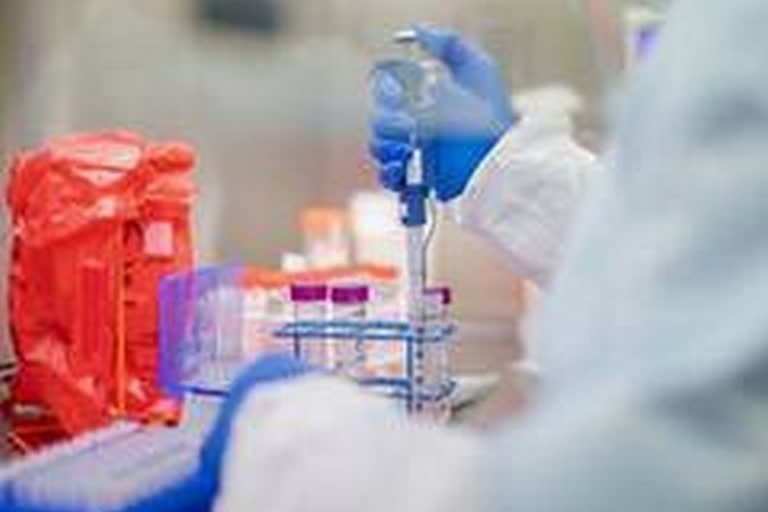New Delhi: Being aware of the recent spike in Covid-19 cases in India, the Union Ministry of Health and Family Welfare (MoHFW) on Thursday has asked all states and UTs for an extensive testing by antigen-based rapid diagnostic test (RDT).
The health ministry gave the suggestion after a study conducted by Indian Council of Medical Research (ICMR) has found that a highly sensitive and specific antigen-based rapid diagnostic test (RDT) is the need of the hour.
The ministry, however, said that real-time reverse transcription-polymerase chain reaction (rRT-PCR) kits are the gold standard of testing.
The ICMR said that the limited supply of RT-PCR kits and reagents has made meeting the rising demand for increased testing incompetent, worldwide.
To ascertain the efficacy of RDT, a cross-sectional, single-blinded study was conducted at a tertiary care teaching hospital in north India. Paired samples were taken for RDT and rRT-PCR (reference standard) from consecutive participants screened for COVID-19 to calculate the sensitivity and specificity of the RDT. Further subgroup analysis was done based on the duration of illness and cycle threshold values. Cohen’s kappa coefficient was used to measure the level of agreement between the two tests.
The ICMR study found that of the 330 participants, 77 were rRT-PCR positive for SARS-CoV-2. Sixty-four of these patients also tested positive for SARS-CoV-2 by RDT. “The overall sensitivity and specificity were 81.8 and 99.6 per cent, respectively. The sensitivity of RDT was higher (85.9 percent) in participants with a duration of illness with less than 5 days,” the study said.
Also read: WHO in touch with Denmark over mutated strain of COVID-19 detected in minks
With an excellent specificity and moderate sensitivity, this RDT may be used to rule in COVID-19 in patients with a duration of illness with less than 5 days. Large-scale testing based on this RDT across the country would result in quick detection, isolation and treatment of COVID-19 patients, the findings said.
The advantages of RDT such as yielding rapid results, being at a reasonable price and being safe due to viral inactivation and the fact that this does not require sophisticated laboratory set-up or technical expertise make it an ideal test to be rolled out in high-prevalence community settings.
Based on these findings, this test has been adopted in the diagnostic algorithms for Indian hospitals and an advisory has been issued by the ICMR in this regard. However, because negative results cannot rule out SARS-CoV-2 infection, all negative tests should be covered by RT-PCR.
A total of 11,42,08,384 cumulative Covid tests have been conducted in India till Wednesday with 12,09,425 tests being conducted in the last 24 hours.
Four states in India including Maharashtra (21.53 percent), Kerala (16.12 percent), Delhi (7.08 percent) and West Bengal (6.87 percent) together account for more than 51 percent of the active cases.



